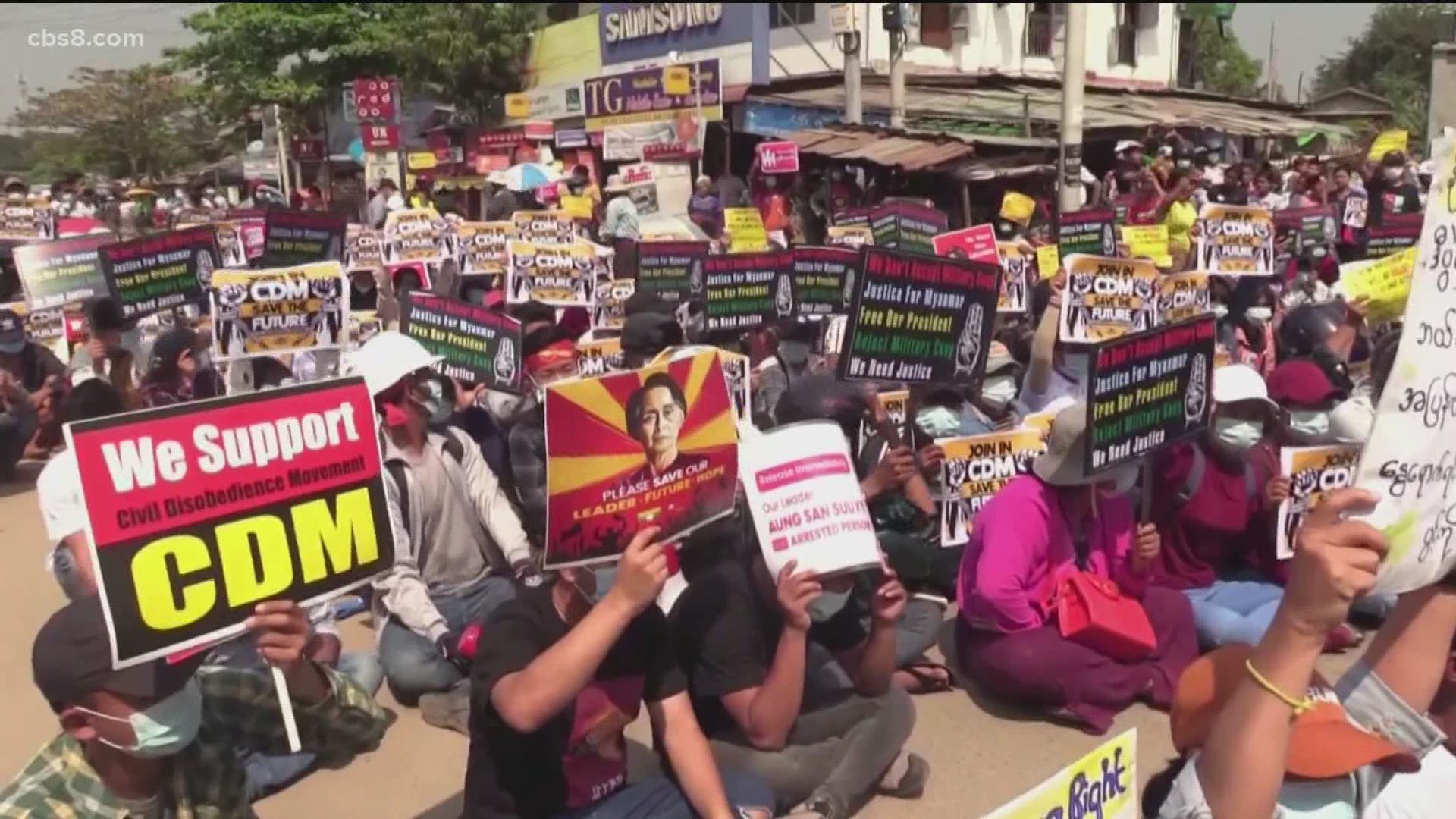SAN DIEGO — For April Moo and Mu Aye, two natives of the nation of Myanmar and current San Diegans, the situation in their home country is all too familiar
“We have been persecuted and discriminated against by the Burmese military regime for so long; more than 70 years,” said Moo. “Our plight has been so severe that it’s even called a genocide.”
Both Moo and Aye are ethnically Karen and were born in refugee camps in Thailand; their parents persecuted by the military. Since its independence in 1948, Myanmar, formerly known as Burma has been rife with conflict between the military, its people, and the government. The south-east Asian country was ruled by the military for nearly 50 years but was beginning recently to see democratic reforms.
But on Feb. 1, 2020, the Burmese military staged a coup d'état, deposing the democratically-elected government, once again bringing one-party, military rule to Myanmar. Wide-spread protests throughout the country followed and a violent crackdown on demonstrators.
“The violence by the Burmese against civilians has escalated and people in Burma have been demanding justice and democracy for their country,” said Moo.
“[They've used] water cannons, live ammunition and rubber bullets,” added Aye. “They just randomly started shooting at peaceful protesters.”
According to the New York Times, at least 51 protesters were killed by military forces this weekend. Both women who spoke to News 8 have friends that reside in Myanmar, but information from them has been slow since the government can shut off access to the internet. But the images taken from the protests speak from themselves and Moo and Aye feel for the millions of protestors risking health and safety to see a return to a democratically elected government.
“They don’t stop, they still fight for their freedoms and they are not afraid,” said Moo. “I am very proud of them for doing what they do.”
On Saturday, over 8,000 miles away, the Karen Organization of San Diego also took to the streets to give their support to those fighting for democracy.
“We want to show solidarity with the people of Myanmar,” said Moo. “Let them know that we still care. There’s still hope.”

